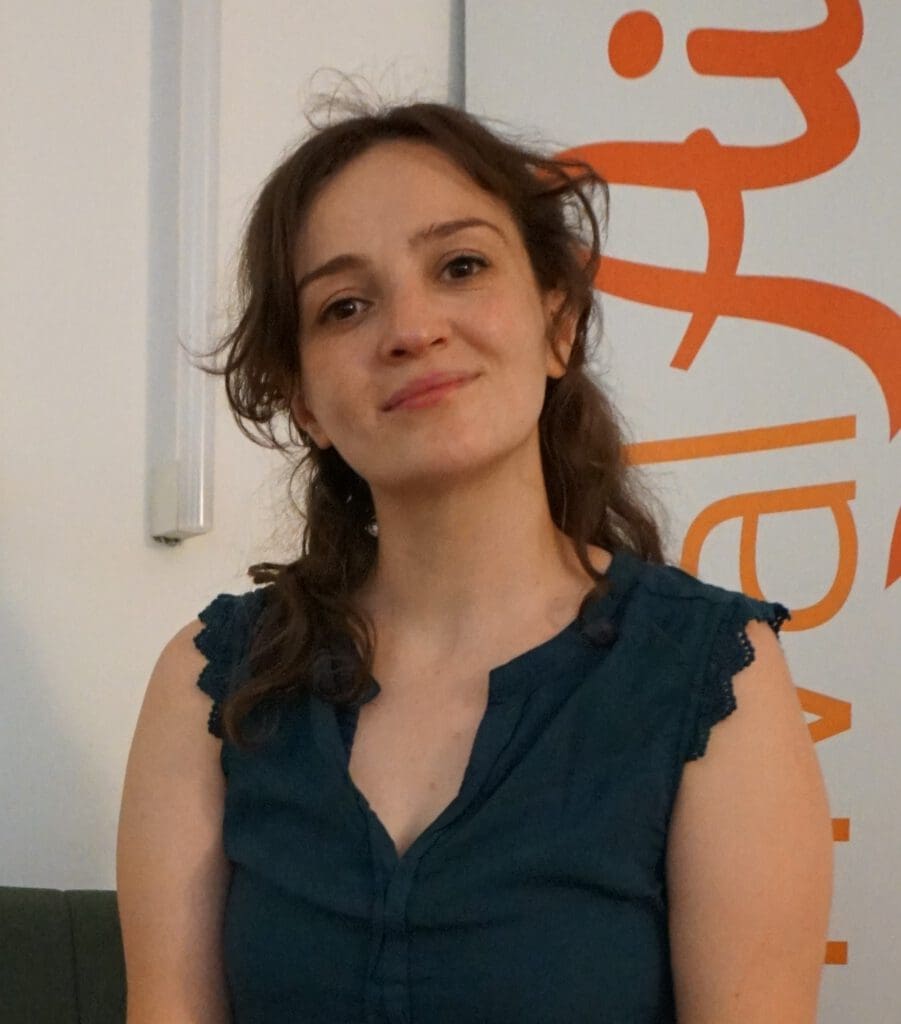Azada Henze
TranslAid

LANGUAGES: GERMAN, AZERBAIJAN, RUSSIAN, ENGLISH
FAVORITE GERMAN WORD: WANDERLUST
Today we introduce you to our favorite Azada. Azada comes from Azerbaijan and has been with us for 1 ½ years. Today we want to tell you about her and her experiences.
Path to volunteering and contribution to the development of the ArrivalAid app
From the very beginning, Azada worked on a voluntary basis with the software company iteratec GmbH to develop the app. This app will be used to arrange TranslAid 's interpreting assignments in the future. Each volunteer then receives suggestions for assignments directly in the app and can book them there. When developing the app, Azada programmed calendar booking. You can enter your vacation there. And then you won't receive any assignments or emails during this time. At the end, Azada tested whether everything worked.
“The difficult part of the development was that it wasn't my area of expertise in programming, and a new programming language for me was also used. But the team was great, and then everything worked out well. In the beginning, I worked on the app for 10 to 16 hours a week. Now it's less. However, I am now taking on more assignments as a language mediator. I mostly interpret in Russian. There are many assignments there.”
Azada wanted to volunteer. There is a volunteer center in Fürstenried, where she used to live. There were various advertisements for volunteer positions there. At this center, Azada learned about the possibility of co-developing the app for TranslAid . At that point she didn't know much about TranslAid and ArrivalAid. After getting to know the projects, she was enthusiastic and continues to volunteer for TranslAid to this day.
Experiences at TranslAid
Again and again, the assignments involve difficult topics, says Azada. She was often called to interpret during assignments at the hospital. It was especially difficult for the people who needed the translation. So, the interpreting assignments can be exhausting and stressful both for the interpreter and for the person needing assistance.
“Once a woman almost cried during a mission when she found out that we were all volunteers TranslAid Azada says she was very happy about this reaction because she realized that something good was being done TranslAid
There are two challenges as a language mediator, says Azada. One is more technical and the other is more emotional. Sometimes there are words that are difficult in German. Because German is not Azada's native language. It is sometimes difficult to translate the statements correctly. On the other hand, it is difficult to distance yourself from the people involved in the assignments because some of them involve stressful topics. She is always sorry when people get a bad diagnosis during an assignment.
Tips for interpreting
Other people in Germany often say that it is not necessary to get involved because there are already so many offers in Germany. Azada disagrees. There is a great need and more people should get involved. But you have to be clear that when you do volunteer work you also have to be professional. Even if it is done in your free time, it is work and you have to take it seriously. Preparation is also important and you always have to keep your head on the matter.
Azada has a tip for this: When someone starts interpreting, they should always prepare well. Start slowly at first and take on only a few assignments, perhaps one every 2 or 3 weeks. This way, you won't immediately feel overwhelmed and think you don't have enough time. It's better to start slowly and then be consistent. It's also important to learn how much you can handle and to focus well on each task.
“If you’re thinking about volunteering yourself. Then take the first step now and just start.”
Motivation to get involved with TranslAid
It is important for Azada to get involved with TranslAid because she herself came to Germany 10 years ago without family. She believes that people fleeing a country must receive support in the country where they arrive. She believes in the ideas and goals of TranslAid and wants to support people. It is particularly important for her because she can understand people's situations well. Azada found the language a particularly big hurdle at the beginning and unfortunately had no support. It was also difficult psychologically because people didn't understand her and Azada didn't understand her either.
She believes it is important for refugees to know that there is support for them and people who want to help. Many of her friends, who also come from Azerbaijan, would also have liked such support when they arrived.
The most difficult German word, says Azada, is “gleichgeschlechtlich" (same-sex). She found it very difficult to pronounce when she first heard it. On the other hand, Azada finds “Wanderlust” a very nice German word. Even if a lot of people whose native language is not German say that. Azada thinks it's beautiful because she hasn't heard it in any other language before.
Thank you for the interview and your commitment as a volunteer interpreter and app developer!

